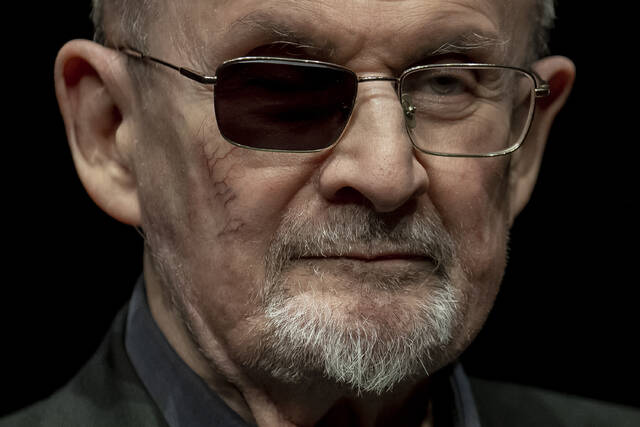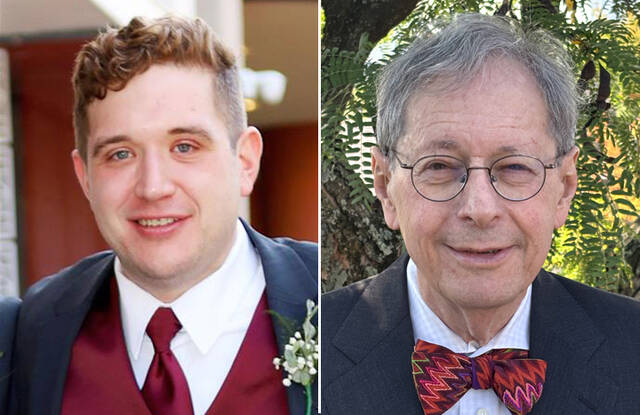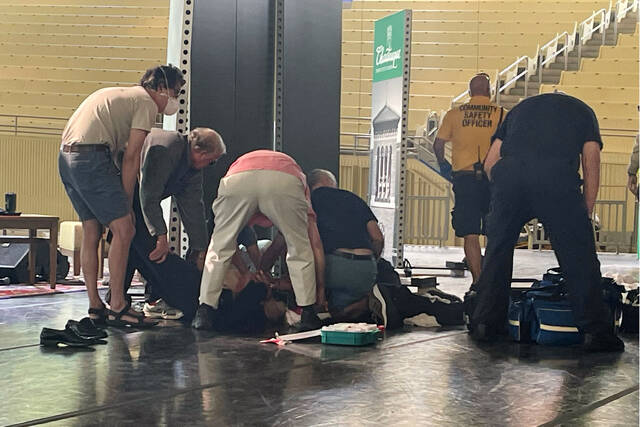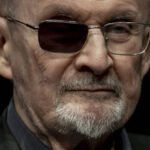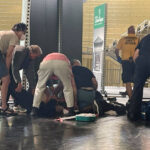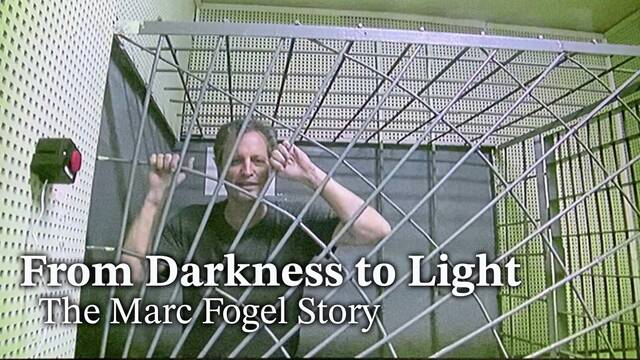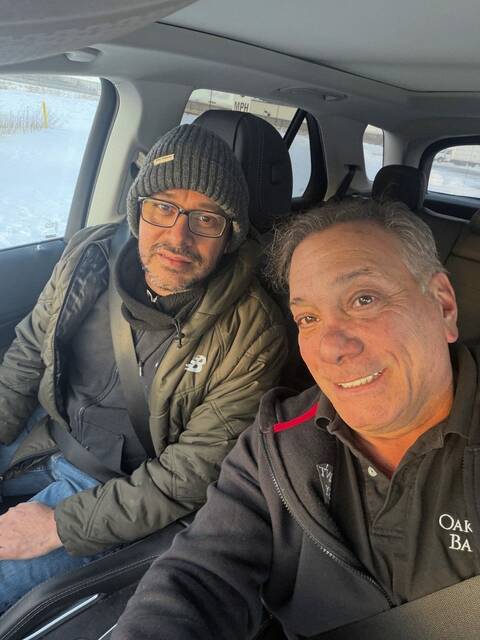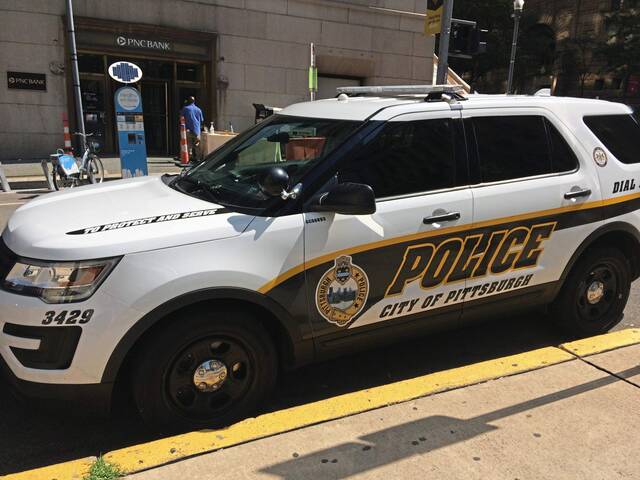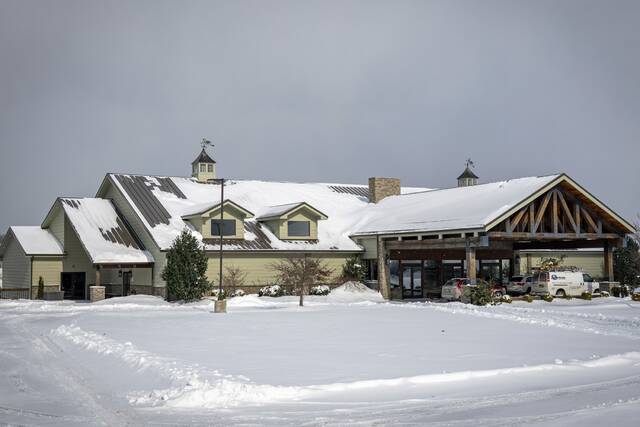Ralph Henry Reese doesn’t remember much about the day he helped save Salman Rushdie’s life.
Not the blood pooling beneath the famed novelist.
Not the sharp pain from the stab wound above his own right eye.
There was no time for fear. No thoughts of heroism.
Just instinct — he did not want to let the attacker get away.
“It’s a very strange and unusual effect,” Reese said.
On Aug. 12, 2022, Rushdie — known for his novel “The Satanic Verses,” which drew controversy and death threats from Iranian leaders in the 1980s — was seated on the stage at the Chautauqua Institution preparing to speak. He was then abruptly attacked by 24-year-old Hadi Matar.
Three years later, the Carnegie Hero Fund Commission has decided to award Reese, of Pittsburgh, and Patrick Haskin, of Chautauqua, N.Y, with medals of heroism for intervening during the attack. Matar was convicted of attempted murder in February.
Reese co-founded Pittsburgh’s chapter of City of Asylum, a nonprofit that provides refuge to exiled writers.
“To have a person, who was so centered in our core value, attacked … was an affront to everything I had been trying to do,” Reese said.
The Carnegie Hero Fund Commission annually receives around 800 submissions. Then 80 people are chosen to receive The Carnegie Medal, said Jewels Phraner, director of administration and outreach.
The requirements were set in place in 1904 by Andrew Carnegie and were designed with the thought that “people will do whatever is necessary to save their own.” They also pose the question of whether the nominee intentionally saved the life of another, Phraner said.
The candidate for an award must be someone who voluntarily risks death or serious injury to an “extraordinary degree” while saving or attempting to save the life of another person, as outlined on the commission’s website.
“These incidents are always going to be traumatic. You cannot save someone’s life without trauma,” Phraner said.
Knife attack
Rushdie was stabbed 10 to 15 times with a 10-inch blade.
At the time of the attack, Reese was seated next to Rushdie, preparing to moderate the discussion onstage. Haskin, the event’s supervisor, was backstage. Haskin temporarily distracted the attacker by running at him and striking his shoulder.
As the attack continued, Reese held the attacker’s legs in an effort to prevent further injury to Rushdie. However, the assailant’s upper body remained free, and he continued his assault.
Haskin then punched the assailant in the arm to try and loosen his grip on the weapon. When this effort proved unsuccessful, Haskin laid face down across the attacker’s upper body.
Rushdie then moved a few feet away where he lay bleeding on the floor.
Audience members who came to hear Rushdie speak helped disarm the attacker. One man pinned the assailant to the ground and restrained his arm, while another person removed the knife from his hand.
“Obviously a lot of people went on that stage,” Phraner said. “(But Reese and Haskin) really made an impact.”
A friend of the Carnegie Hero Fund Commission, named Abby Marsh, submitted a nomination for the incident as a whole. During the commission’s investigation, Phraner said video footage from two different angles showed that Reese and Haskin were the ones who subdued the attacker.
‘I was dying’
Rushdie testified at Matar’s criminal trial in February. He said that the people who intervened during the attack likely saved his life.
“It occurred to me that I was dying. That was my predominant thought,” he said, as reported by the Associated Press.
Following the assassination attempt, Rushdie was flown to the hospital. He was blinded in his right eye and underwent multiple surgeries for his injuries.
Rushdie and Haskin could not be reached for comment.
Reese also suffered a stab wound on his face. He received seven stitches just above his right eye.
Reese and Haskin’s medals will be cast over the next two to three months.
“It’s kind of a recognition of the way you are raised,” Reese said, citing lessons from his father about how to help others growing up. “That’s why you respond the way you respond.”
While Reese is relieved to have the trial behind him, he said receiving the medal has brought the trauma of the attack back to the front of his mind.
“Somewhere underneath you’re probably going to live with it forever,” he said.


